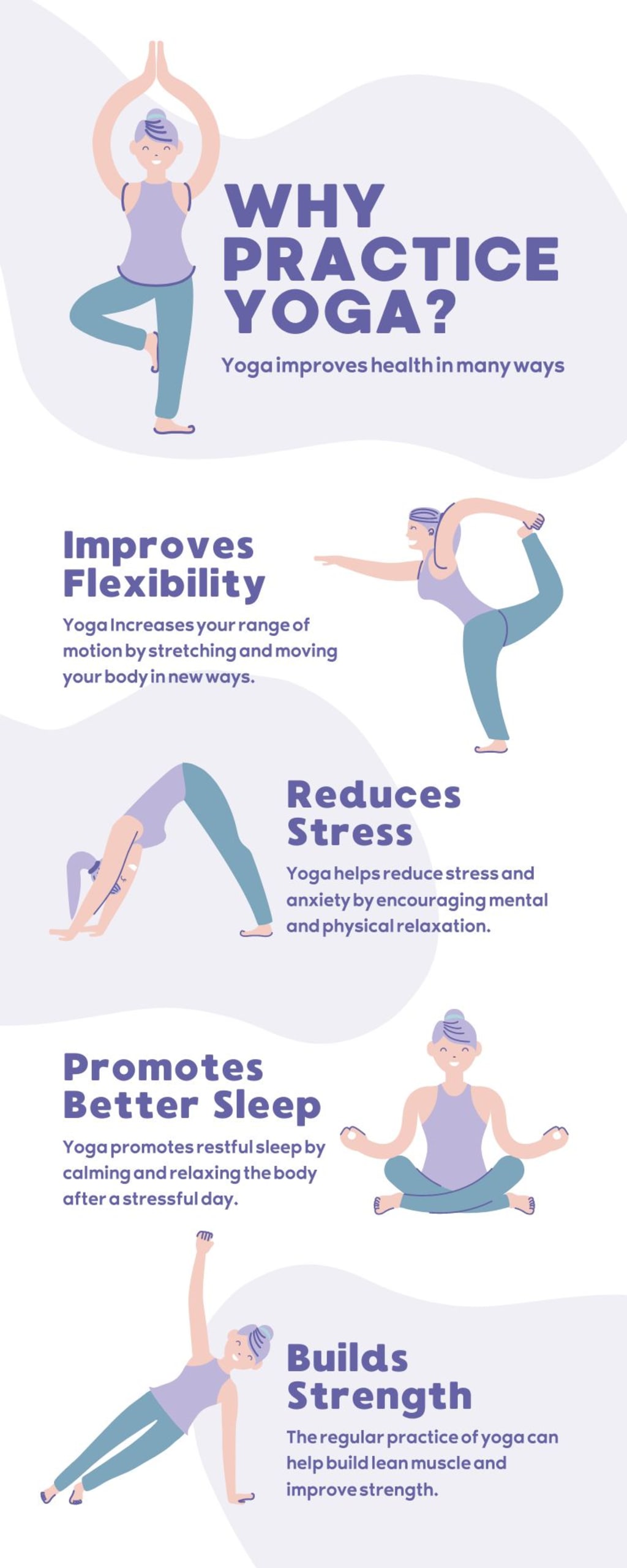The Power of Yoga for Mind-Body Health
A Complete Guide

Yoga is an ancient practice that has been around for thousands of years, and its benefits for the mind and body are well documented. Today, yoga is practiced all over the world and has become a popular way to promote overall health and wellness. In this guide, we will explore the power of yoga for mind-body health and provide a comprehensive overview of the practice.
What is Yoga?
Yoga is a physical, mental, and spiritual practice that originated in ancient India. It involves a series of postures, breathing exercises, and meditation techniques designed to promote physical and mental well-being. The word "yoga" comes from the Sanskrit word "yuj," which means to yoke or unite. The practice of yoga is meant to unite the mind, body, and spirit and bring a sense of balance and harmony to the individual.
The Benefits of Yoga for Mind-Body Health
There are numerous benefits to practicing yoga, both for the mind and body. Some of the most significant benefits include:
1. Improved Flexibility:
Yoga postures, or asanas, are designed to increase flexibility and range of motion in the body. As individuals practice yoga regularly, they will find that their flexibility and overall mobility increase.
2. Increased Strength:
Yoga also helps to build strength in the muscles of the body. Many yoga poses require individuals to hold their body weight in various positions, which can help to build strength and endurance over time.
3. Reduced Stress:
One of the most significant benefits of yoga is its ability to reduce stress and promote relaxation. Many yoga postures and breathing exercises are specifically designed to calm the mind and promote a sense of inner peace.
4. Improved Cardiovascular Health:
Regular practice of yoga has been shown to improve cardiovascular health by reducing blood pressure, cholesterol, and overall heart rate.
5. Better Sleep:
Yoga can also help individuals to get better quality sleep. Many people who practice yoga report improved sleep quality and better overall rest.
6. Reduced Symptoms of Depression and Anxiety:
Regular practice of yoga has been shown to reduce symptoms of depression and anxiety. The practice of yoga can help individuals to manage their emotions and feel more centered and calm.
7. Improved Focus and Concentration:
Many yoga postures require individuals to focus on their breath and maintain balance. This can help to improve overall focus and concentration in daily life.
How to Get Started with Yoga
If you are interested in practicing yoga, there are a few key things to keep in mind. First, it's essential to find a qualified teacher who can guide you through the practice safely and effectively. Many yoga studios offer introductory classes for beginners, which can be a great way to get started. Additionally, it's important to choose the right type of yoga for your needs. There are many different styles of yoga, including Hatha, Vinyasa, and Bikram, each of which has its unique benefits.
Once you have found a teacher and style of yoga that works for you, it's essential to establish a regular practice. Many people find that practicing yoga a few times a week is enough to see significant benefits. Additionally, it's important to listen to your body and avoid pushing yourself too hard. Yoga is a non-competitive practice, and it's essential to approach it with a sense of curiosity and openness rather than trying to achieve specific goals.
Some Tips for Practicing Yoga Here are some tips to help you get the most out of your yoga practice:
1. Breathe: One of the most important aspects of yoga is proper breathing. Focus on breathing deeply and slowly and try to synchronize your breath with each movement.
2. Listen to Your Body: As you practice yoga, pay attention to how your body feels. If something doesn't feel right, back off and modify the posture as needed.
3. Warm Up: Before you begin your yoga practice, it's essential to take some time to warm up. This can involve simple stretching exercises or a few rounds of sun salutations to get the blood flowing and prepare the body for the practice.
4. Practice with Intention: One of the most powerful aspects of yoga is its ability to help individuals connect with their inner selves. As you practice yoga, try to do so with a sense of intention and purpose, whether that be to reduce stress, increase strength, or simply connect with your breath.
5. Incorporate Meditation: Many yoga practices incorporate meditation techniques, which can help to calm the mind and promote a sense of inner peace. Try to incorporate a few minutes of meditation into your practice each day, even if it's just a few deep breaths at the beginning or end of your practice.
6. Stay Hydrated: As with any physical practice, it's essential to stay hydrated when practicing yoga. Make sure to drink plenty of water before, during, and after your practice to help keep your body nourished and energized.
In conclusion, yoga is a powerful practice that can help to promote overall health and well-being. Whether you are looking to improve your flexibility, reduce stress, or simply connect with your inner self, yoga can be an excellent tool to help you achieve your goals. By following a few simple tips and establishing a regular practice, you can harness the power of yoga to transform your mind and body and experience the many benefits of this ancient practice.





Comments
There are no comments for this story
Be the first to respond and start the conversation.